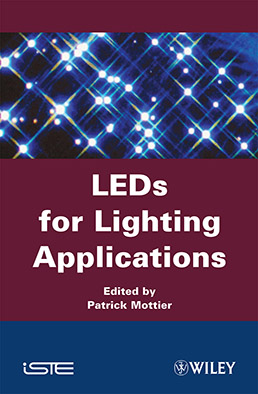
LEDs have now left the realm of signage and have moved definitively, and with unquestionable advantages, into the field of lighting. The departure was prompted in the late 1980s with the invention of the blue LED, a wavelength that had been hitherto missing and which opened the way to white light. Since then, LED performances, including their energy efficiency, have not ceased to increase and now compete with the performances of fluorescent lamps, and have still have far to go.
The first chapter recalls the principles of LED lighting and focuses on issues and challenges. The four following chapters are each devoted to a key step in LED manufacturing: substrate, epitaxy, process and packaging. Chapter 6 is devoted to the photoelectric characterization of LEDs. Lighting by LEDs imposes a certain level of color quality and this is the subject of Chapter 7. Finally, Chapter 8 discusses the emergence of OLEDs, or organic LEDs with their specificity, which should be taken into account right now.
1. Light-emitting Diodes: Principles and Challenges, G. Zissis.
2. Substrates for III-Nitride-based Electroluminescent Diodes, P. De Mierry.
3. III-Nitride High-brightness Light-emitting Diodes, A. Dussaigne, N. Grandjean.
4. Diode Processing, P. Gilet.
5. Packaging, A. Gasse.
6. Photoelectric Characterization of Electroluminescent Photodiodes, C. Eugène, J.-M. Deswert.
7. Quality of White Light from LEDs, F. Viénot.
8. OLED Technology, T. Maindron, D. Vaufrey.
Patrick Mottier (54), currently head of lighting programs at CEA-LETI (Grenoble-France)